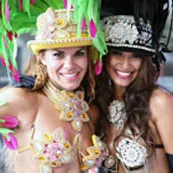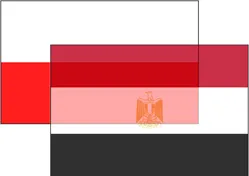Every Arab of my generation and my parents’ generation knows Nadia Lufti. A beautiful Egyptian actress with large brown eyes and blonde hair who played various parts: of a woman in love, a crafty dancer or a bosom friend and a caring sister. From 1950’s she reigned supreme on the silver screen, next to big names of the generation, including a world-famous actor Omar Sharif. As a young person I watched her films with passion. I had to watch every film if she was in it. I had a liking for her, or maybe it was just adolescent fascination?? However, I grew up and grew out of it, but I still have a sentimental attachment to her roles and her face.
However, the greatest respect I felt for her in summer 1982 during the Israeli-PLO war in Lebanon and the siege of Beirut. Nadia Lufti, in the company of a dozen or so Egyptian actors, including famous Noor Al. Shariff, managed to get to Beirut under siege with a camcorder and recorded the war, air raids and killings of innocent people. For me, a Palestinian, it was not only an expression of Arabic solidarity, but true heroism.
Many years later I was in Cairo at the Arabic Film Festival, a yearly event of Arabic cinematography. Although I hadn’t seen a single Arabic film for years, childhood memories must have come back to me and it was very nice to meet the heroes from those years.
I remembered my father when I got to know these actors, because it was mainly due to him that I walked to the cinema which was situated a few kilometres away, to see a (from today’s point of view) stupid film. One of the festival’s guests was a director who I had known when she was a teenager – the sister of my bosom friend, a Syrian painter. Her film won the main award of the festival so she was besieged. I didn’t manage to speak to her until the gala in the Marriott Hotel in Cairo.
Our meeting after so many years was very cordial. She invited me to her table where other people, more or less familiar to me, were sitting. One of them was my idol from childhood – Nadia Lufti, still very beautiful. There was a short introduction and then the conversation carried on. One of the guests asked me where I was from and I replied spontaneously: from Poland. I was speechless by surprise when Ms Nadia Lufti said to me with a sincere, broad smile and in beautiful Polish: “It is nice to meet a man from Poland!” My jaw dropped!
My brain started to analyse the situation quickly: “No! I must be tired of the festival and heat, bewildered by her presence and the noise around. After all, she is Egyptian and couldn’t speak Polish”. Then I heard her again: “I can’t speak Polish very well but I still understand a lot and remember”. “How do you know Polish?” – I asked and still couldn’t believe my ears. “My Mum was Polish and my Dad a Saidi (an Egyptian farmer)”.
Nadia Lufti, born Paula Shafiq is half-Polish, half-Egyptian. Her parents got married in 1936 and she was born a year later.
Although the Saidi are very conservative and traditional and their system of values is very restrictive, they are also known for honour, ambition and simple lifestyle.
Paula’s Mum lived in a small town in this traditional society. She developed good relationships with her husband’s family and neighbours. She played and important part in this society and told the family, friends and neighbours different stories from world literature, encouraging them to send their children to school. It was thanks to her wisdom, stubbornness, her interest in cinematography and knowledge of trends in the world cinema that her daughter loves to act and sing. She was in a school artistic band. It was thanks to this mother that the father allowed the daughter to act on stage which was against the conservative system of values that this society held. Acting was seen as prostitution, “but everyone wanted to watch films” – laughs Paula after years.
Her Mum was one of them, refused to move into the metropolis, Cairo, and preferred to die and be buried in a small town by her brave husband who also had had to face all the people whose attitude towards this marriage was hostile.
“She belonged to this land” – said Ms Paula to me – “she never went farther than Alexandria and didn’t want to go back to Poland, her home and her family were here”.
She didn’t know where her Mum was from, if she had relatives or friends in Poland. She just came to Egypt and stayed there.
Personally, I understand Paula’s Mum completely. Home is where we feel good, where we think we belong and want to build a family nest. Home is where we can relax at a beloved person’s side and forget about everything behind the door. Home is warmth, which we create for family and friends. I completely agree with Ms Paula’s Mother, and I also don’t want to be buried in Poland. Why? I hate cold and if I was buried here, I would freeze to death and I don’t want to die twice. ;)
Maged Sahly
Translated by: Karolina Ginalska











